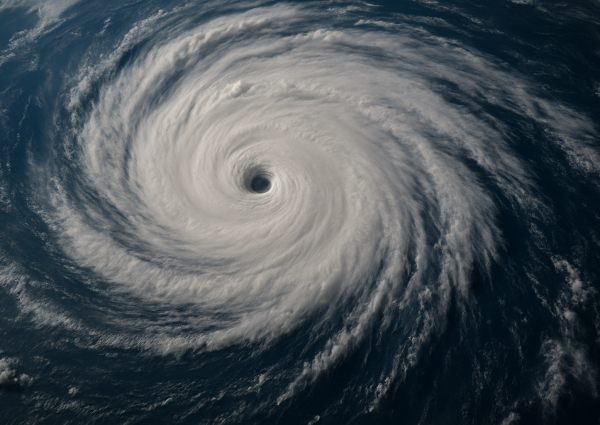Hurricanes
Key Concerns
Hurricanes pose serious risks for older adults, especially due to challenges with evacuation, mobility, and access to medical care. Strong winds, flooding, and power outages can disrupt essential equipment, medication, and communication, increasing the chance of injury, illness, or isolation during and after the storm.

How to Limit & Avoid Risks Associated with Hurricanes
- Stay informed by signing up for weather alerts, using a NOAA weather radio, or downloading trusted emergency apps.
- Create a personal evacuation plan, including transportation assistance, shelter options, and contact information for caregivers or family.
- Prepare a hurricane emergency kit with medications, water, non-perishable food, flashlight, batteries, medical devices, and important documents in waterproof bags.
- Refill medications and backup medical supplies ahead of the storm in case pharmacies or clinics are closed.
- Charge phones, medical devices, and battery backups well before the storm hits.
- Avoid staying alone during hurricanes—arrange to stay with family, in shelters, or have regular check-ins with neighbors or caregivers.
- Know your evacuation zone, and leave early if instructed to avoid road closures or being trapped in rising water.
- Secure your home by closing storm shutters, moving furniture away from windows, and unplugging non-essential electronics.
- Avoid using candles during power outages—opt for battery-powered lights to prevent fire hazards.
- Stay indoors away from windows during the storm to avoid injury from broken glass or flying debris.
- After the storm, avoid floodwaters, downed power lines, and unstable structures until authorities declare it safe.
Frequently Asked Questions
Q.1 Why are hurricanes especially dangerous for older adults?
Older adults may have mobility challenges, rely on medical equipment, or live alone, making evacuation and response more difficult. Hurricanes can also cause power outages, limit access to medication, and increase risk of injury or illness during and after the storm.
Q.2 What should I include in a hurricane emergency kit?
Your kit should have prescription medications, non-perishable food, bottled water, flashlight with batteries, medical supplies, important documents in a waterproof bag, a cell phone charger, and any assistive devices you rely on.
Q.3 What if I use medical devices that need power?
Make sure to fully charge your devices ahead of time and have portable backup batteries or generators if possible. Inform local emergency services ahead of time that you rely on life-sustaining equipment.
Q.4 Should I stay home during a hurricane if I feel safe?
If evacuation is advised, don’t wait. Staying home could trap you without power, clean water, or help. Older adults are often more vulnerable to heat, dehydration, or injury during prolonged outages or flooding.
Q.5 What should I do if I don’t drive or live alone?
Plan ahead with family, neighbors, or local emergency services. Many communities offer transportation and shelter support for older adults during hurricane emergencies. Sign up in advance if required.
Q.6 What dangers remain after a hurricane passes?
After a hurricane, be cautious of floodwaters, fallen power lines, structural damage, and mold from water intrusion. Avoid drinking tap water until authorities confirm it’s safe.
References & Helpful Articles
- https://www.fda.gov/food/food-safety-during-emergencies/protect-food-and-water-during-hurricanes-and-other-storms
- https://www.fda.gov/consumers/consumer-updates/hurricane-season-be-prepared
- https://www.hud.gov/program_offices/healthy_homes/hurricane_help
- https://community.fema.gov/ProtectiveActions/s/article/Hurricane-Protect-Your-Property-Mitigation-and-Retrofitting
- https://www.epa.gov/naturaldisasters/hurricanes
- https://www.epa.gov/newsreleases/epa-tips-prepare-hurricane-season
- https://www.fema.gov/fact-sheet/tips-prepare-your-home-hurricane-season